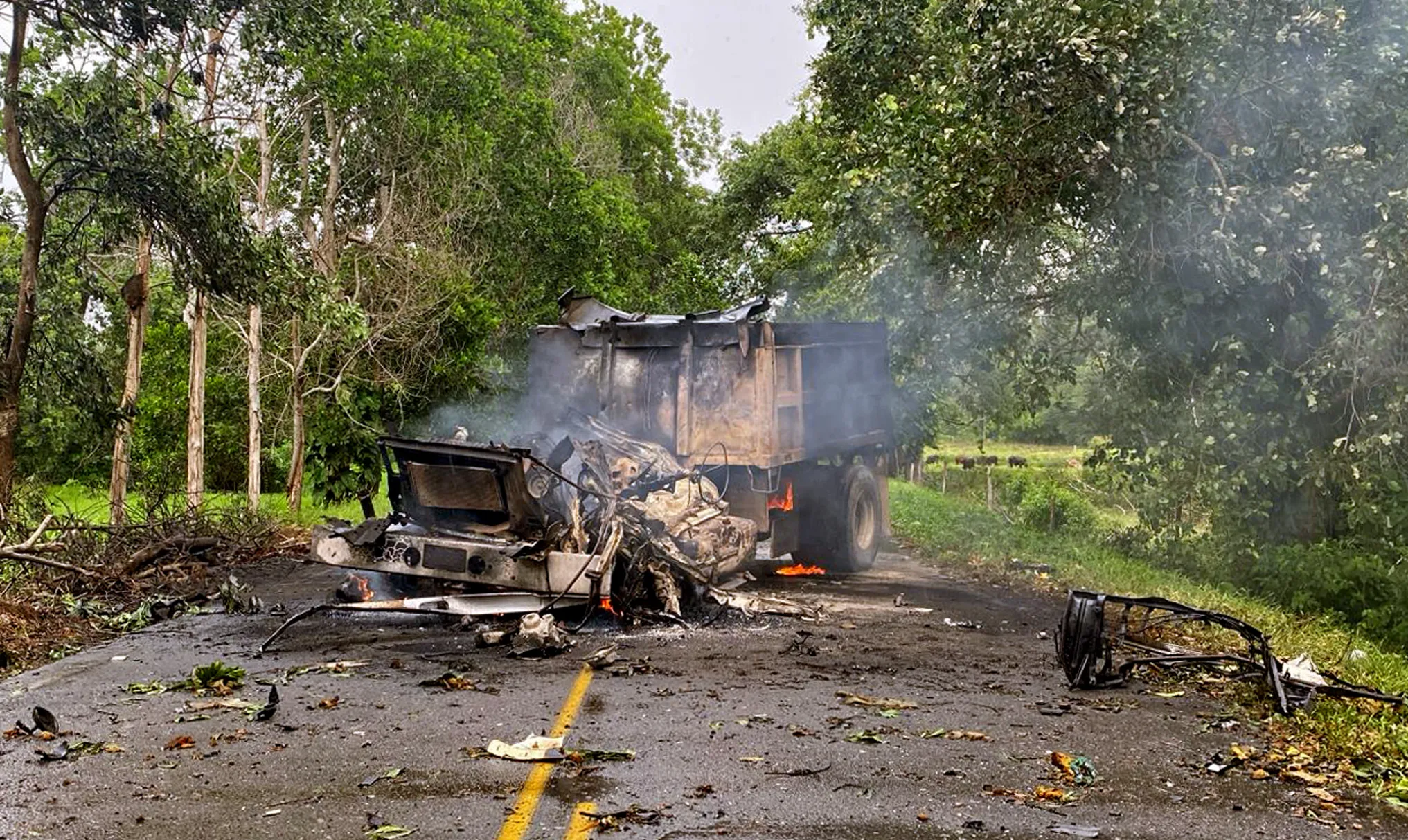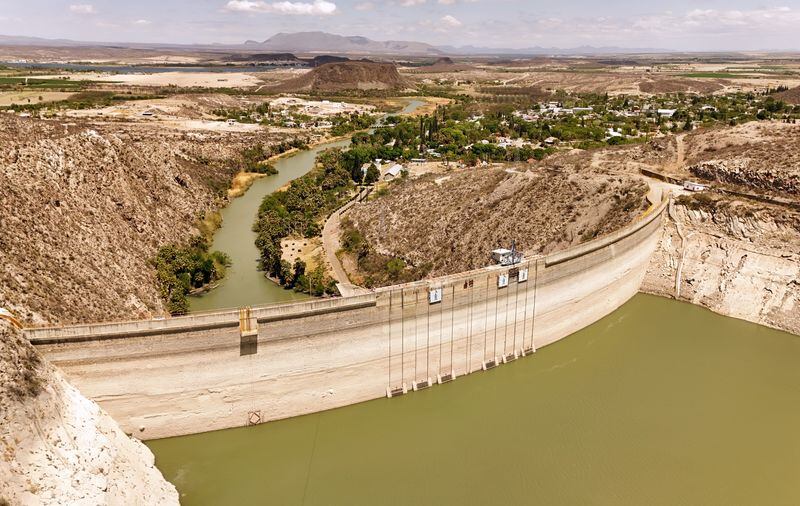International
The Government of Colombia clarifies that the dialogue with the ELN guerrillas “is suspended” after the attack

The Government of Colombia confirmed on Wednesday that the peace dialogue with the guerrillas of the National Liberation Army (ELN) “is suspended” after the attack by that armed group against an Army military base in the department of Arauca, in the east of the country, which left two dead and 27 injured.
The Government delegation at the dialogue table clarified in this way what was said on Tuesday night by President Gustavo Petro, who declared that the attack “closes a peace process with blood.”
“During these months the Government has sent multiple proposals to the ELN. Today the dialogue process is suspended. Its viability is severely damaged, and its continuity can only be recovered with an unequivocal manifestation of the will for peace of the ELN,” the delegation added in a statement, which did not completely close the door to the process.
In the letter they also expressed their “absolute rejection of the attack perpetrated by the ELN on the military base of Puerto Jordán, Arauca” and showed their condolences to the families of the victims “in the face of this new act of violence that claims the lives of young Colombians.”
The Colombian Government and the ELN restarted in November 2022 in Caracas the peace negotiations with the last major Latin American guerrilla that, however, stagnated at the beginning of this year due to the demands of the ELN that the Executive remove them from the list of terrorist groups and abandon the regional dialogue it maintains in the department of Nariño (southwest) with Comuneros del Sur, supposedly split from the ELN.
During the various cycles of negotiations in Caracas, Havana and Mexico City, the parties reached several partial agreements and agreed on a one-year bilateral ceasefire, the longest maintained with that guerrilla, which ended on August 3, after which the ELN resumed its attacks against public force and infrastructure in different parts of the country, especially in Arauca, where it is particularly strong.
Petro compared Tuesday’s attack to the attack on the Colombian Police Cadet School in Bogotá, which in January 2019 left 20 dead and 68 injured, including an Ecuadorian cadet, and which put an end to the dialogue that the Government was having with that guerrilla at that time.
“And obviously, as happened that time in another place near here, at the Police School, because many police officers died, ensigns who were studying there, because it is practically an action that closes a peace process with blood,” he added.
On that occasion, the government of Iván Duque broke off peace negotiations with the guerrillas.
Tuesday’s attack was at the Puerto Jordán military base, in Arauca (east), which “was attacked with improvised explosive devices launched from a dump mantip.”
According to figures provided by the Ministry of Defense, 27 soldiers were injured, “of which 20 have splinters” and seven are “seriously injured.” Two of the injured died on Tuesday night.
The violent escalation of the ELN left two soldiers dead last Sunday in a rural area of Tame (Arauca) and also includes attacks on the Caño Limón-Coveñas and Bicentenario pipelines, two of the most important in the country.
The Caño Limón-Coveñas pipeline, 770 kilometers long, transports oil from the Arauca wells to Coveñas, a Colombian port in the Caribbean Sea.
International
U.S. and Mexico Reach Deal to Address Water Deficit Under 1944 Treaty

The United States and Mexico have reached an agreement to comply with current water obligations affecting U.S. farmers and ranchers and for Mexico to cover its water deficit to Texas under the 1944 Water Treaty, the U.S. Department of Agriculture said in a statement.
The department уточified that the agreement applies to both the current cycle and the water deficit from the previous cycle.
On Monday, U.S. President Donald Trump accused Mexico of failing to comply with the water-sharing treaty between the two countries, which requires the United States to deliver 1.85 billion cubic meters of water from the Colorado River, while Mexico must supply 432 million cubic meters from the Rio Grande.
Mexico is behind on its commitments. According to Washington, the country has accumulated a deficit of more than one billion cubic meters of water over the past five years.
“This violation is severely harming our beautiful crops and our livestock in Texas,” Trump wrote on Monday.
The Department of Agriculture said on Friday that Mexico had agreed to supply 250 million cubic meters of water starting next week and to work toward closing the shortfall.
Agriculture Secretary Brooke Rollins, quoted in the statement, said Mexico delivered more water in a single year than it had over the previous four years combined.
Trump has said that if Mexico continues to fall short of its obligations, the United States reserves the right to impose 5% tariffs on imported Mexican products.
Mexico’s Deputy Foreign Minister for North America, Roberto Velasco, said that a severe drought in 2022 and 2023prevented the country from meeting its commitments.
International
Several people shot in attack on Brown University campus

Several people were shot on Saturday in an attack on the campus of Brown University, in the northeastern United States, local police reported.
“Shelter in place and avoid the area until further notice,” the Providence Police Department urged in a post on X. Brown University is located in Providence, the capital of the state of Rhode Island.
U.S. President Donald Trump said on his social media platform Truth Social that he had been briefed on the situation and that the FBI was on the scene.
At 5:52 p.m. local time (11:52 p.m. GMT), Brown University said the situation was still “ongoing” and instructed students to remain sheltered until further notice.
After initially stating that the suspect had been taken into custody, Trump later posted a second message clarifying that local police had walked back that information. “The suspect has NOT been apprehended,” the U.S. president said.
International
Colombia says it would not reject Maduro asylum request as regional tensions escalate

The Colombian government stated on Thursday that it would have no reason to reject a potential asylum request from Venezuelan President Nicolás Maduro should he leave office, as regional tensions persist over the deployment of U.S. military forces in the Caribbean since August.
“In the current climate of tension, negotiations are necessary, and if the United States demands a transition or political change, that is something to be assessed. If such a transition results in him (Maduro) needing to live elsewhere or seek protection, Colombia would have no reason to deny it,” said Colombian Foreign Minister Rosa Villavicencio in an interview with Caracol Radio.
However, Villavicencio noted that it is unlikely Maduro would choose Colombia as a refuge. “I believe he would opt for someplace more distant and calmer,” she added.
Colombian President Gustavo Petro also commented on Venezuela’s situation on Wednesday, arguing that the country needs a “democratic revolution” rather than “inefficient repression.” His remarks followed the recent detention and passport cancellation of Cardinal Baltazar Porras at the Caracas airport.
“The Maduro government must understand that responding to external aggression requires more than military preparations; it requires a democratic revolution. A country is defended with more democracy, not more inefficient repression,” Petro wrote on X (formerly Twitter), in a rare public criticism of the Venezuelan leader.
Petro also called for a general amnesty for political opponents and reiterated his call for forming a broad transitional government to address Venezuela’s prolonged crisis.
Since September, U.S. military forces have destroyed more than 20 vessels allegedly carrying drugs in Caribbean and Pacific waters near Venezuela and Colombia, resulting in over 80 deaths.
U.S. President Donald Trump has repeatedly warned that attacks “inside Venezuela” will begin “soon,” while Maduro has urged Venezuelans to prepare for what he describes as an impending external aggression.
-

 International4 days ago
International4 days agoWashington declares State of Emergency as atmospheric river brings severe flooding
-

 International4 days ago
International4 days agoU.S. to require five-year social media history from tourists under Visa Waiver Program
-

 International3 days ago
International3 days agoCuba battles out-of-control dengue and chikungunya epidemic as death toll rises to 44
-

 Central America3 days ago
Central America3 days agoHonduras election crisis deepens as CNE president denounces intimidation attempts
-

 Central America4 days ago
Central America4 days agoOAS and EU urge honduran political actors to respect vote results and avoid unrest
-

 International3 days ago
International3 days agoColombia says it would not reject Maduro asylum request as regional tensions escalate
-

 International2 days ago
International2 days agoSeveral people shot in attack on Brown University campus
-

 International3 days ago
International3 days agoEcuador on track for record violence as homicides hit highest level in Latin America again
-

 International4 days ago
International4 days agoSix ecuadorian soldiers jailed pending trial for alleged extrajudicial execution
-

 International2 days ago
International2 days agoU.S. and Mexico Reach Deal to Address Water Deficit Under 1944 Treaty
-

 Central America11 hours ago
Central America11 hours agoPanama seizes over three tons of drugs hidden in Caribbean port container


























